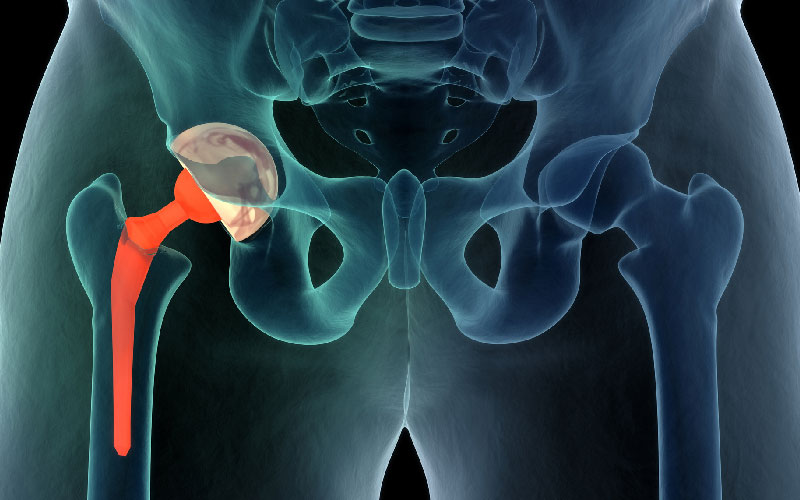There are a few differences between a hip resurfacing surgery and a hip replacement surgery that is often confused. A hip replacement surgery often occurs after a fracture or accident. Here, a prosthetic hip is used to replace the femoral head of the hip. In a hip resurfacing surgery, the femoral head remains intact and is used to hold a device that resurfaces a hip worn by arthritis.
A hip resurfacing surgery offers a number of benefits to arthritis patients, but it does not come without a few complications. Learn more about this surgery and what to look for when you are preparing for one.
Table of Contents
What Happens in Hip Resurfacing Surgery
In a hip resurfacing surgery, the femoral head is kept but is resurfaced with a metal device. The device looks like a ball with a pin on it, almost like a thumbtack but larger.
The pin end of the device is fitted into the femoral neck and secured with a metal socket. In a hip replacement surgery, there is no femoral head or neck to work with.
Advantages of Hip Resurfacing
One of the key advantages of hip resurfacing surgery is that it can be fixed if there is a problem. Hip replacements and hip resurfacing can only be done so many times in a lifetime. With hip problems, especially those caused by arthritis, a doctor is not likely to move right to hip replacement if hip resurfacing is a viable option. Resurfacings can be revised in time, which is likely within 15 to 25 years of the procedure.
If the device fails, the operation will need to be redone. When a hip resurfacing occurs, the device is secure enough to help prevent future hip dislocation.
Hip resurfacing surgeries will require a few days in the hospital, but the patient is normally walking by the next day. That is often not the case for replacements. Mobility after hip resurfacing usually returns to normal, but a hip replacement patient might not walk exactly the same again. Hip resurfacing surgeries have a much shorter recovery time than hip replacements.
Complications of Hip Resurfacing Surgery
The hip resurfacing works with the femoral neck, and there are some times when this component of the bone will fracture. That is a major complication that will require a hip replacement.
Another risk of hip resurfacing is the risk of metal ions. A hip resurfacing procedure uses a metal ball and socket. In time, enough friction could occur to release metal ions into the bloodstream.
Book a Hip Consult Today
If you are suffering from the pain of arthritis in your hips, book a consult with an orthopedic surgeon today. The pain of this condition is unbearable, and the treatment is easy. You’ll be walking like normal again sooner than you know it.








Hi,
I need guest post at:
https://blog.smarthealthshop.com/
I am waiting for your reply.
Contact us here:
https://blog.smarthealthshop.com/guest-posts/
🙂